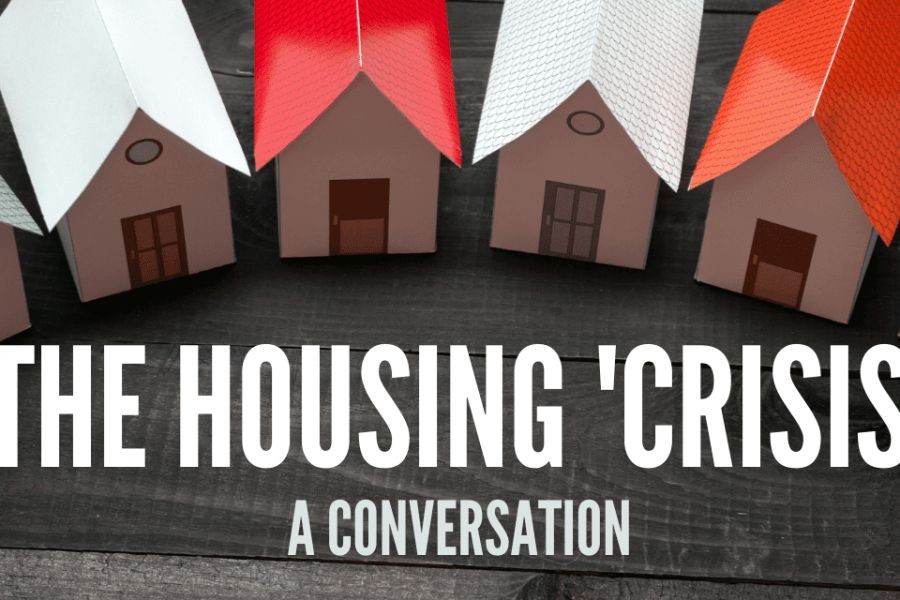New Zealand's housing crisis is a multifaceted issue that continues to impact countless Kiwis, yet its complexities remain largely misunderstood. Housing affordability, stagnant wages, and the scarcity of available homes converge to create a challenging environment for many New Zealanders. But beyond the statistics lie the untold stories of those grappling with the crisis daily. This article delves into the intricacies of the housing market, shedding light on the struggles faced by individuals and families, while offering insights and solutions tailored for technology strategists.
Understanding the Housing Crisis in New Zealand
New Zealand's housing crisis is not simply a matter of supply and demand. It's a complex web of economic factors, governmental policies, and market dynamics. According to Stats NZ, property prices have soared by over 27% in recent years, far outpacing wage growth. This disparity has resulted in home ownership becoming a distant dream for many. The Reserve Bank of New Zealand's regulations, aimed at cooling the market, have had mixed results, often complicating the path for first-time buyers.
The Impact on Everyday Kiwis
The housing crisis affects a broad spectrum of the population, from young professionals to retirees. For example, the median house price in Auckland has reached NZD 1.1 million, making it one of the most unaffordable cities in the world. This situation forces many to rent indefinitely, despite rental prices also climbing steadily. According to a report by MBIE, nearly 40% of renters spend more than 30% of their income on housing, a figure that highlights the financial strain on New Zealanders.
Case Study: Auckland's Housing Dilemma
Problem: Auckland, New Zealand's largest city, faces a unique set of challenges within the housing crisis. The city has experienced explosive population growth due to both natural increase and migration, leading to acute housing shortages.
Action: In response, the Auckland Council implemented the Unitary Plan to increase housing density, allowing for more high-rise apartments and mixed-use developments. This strategy was aimed at maximizing land use and accommodating the growing population.
Result: Since the plan's implementation, there has been a 15% increase in housing stock, yet affordability remains an issue. While the plan has enabled more construction, prices have not stabilized as expected due to high demand and construction costs.
Takeaway: Increasing housing density is a step forward, but it must be paired with policies addressing affordability, such as subsidies or low-cost housing initiatives. Other cities in New Zealand can learn from Auckland's experience to balance development with accessibility.
Pros and Cons of Current Housing Policies
Pros:
- Increased Housing Supply: Policies like the Unitary Plan have boosted construction, providing more housing options.
- Urban Development: High-density housing supports sustainable urban growth.
- Potential for Innovation: New building technologies and methods can be explored.
Cons:
- Affordability Issues: Despite increased supply, prices remain high.
- Strain on Infrastructure: Rapid development can overload existing infrastructure.
- Economic Inequality: High property values exacerbate the wealth gap.
Debunking Myths Surrounding the Housing Crisis
Myth: "More construction will automatically lower prices." Reality: While supply increases, prices are influenced by demand, investor activity, and economic factors, making affordability a persistent issue (Source: NZ Property Investors’ Federation).
Myth: "All New Zealanders want to own homes." Reality: Many prefer renting due to lifestyle choices or financial constraints, as renting offers flexibility and less financial burden (Source: University of Auckland Study).
Myth: "Housing crisis solutions are straightforward." Reality: The issue requires multifaceted approaches involving policy reform, economic adjustments, and community engagement (Source: Reserve Bank of NZ).
Future Trends and Predictions
The future of New Zealand's housing market is poised for significant changes. By 2028, Deloitte predicts that nearly 50% of new housing developments will incorporate smart home technology, making them more sustainable and efficient. Additionally, policy changes focused on affordability, such as increased government subsidies for first-time buyers, are expected to gain traction. As technology continues to advance, blockchain could revolutionize property transactions, making the process more transparent and reducing costs.
Common Mistakes to Avoid in Addressing the Housing Crisis
- Ignoring Technological Innovations: Failing to adopt smart building technologies can lead to missed opportunities for cost savings and efficiency.
- Overlooking Community Needs: Development that doesn't consider the needs of local communities can lead to social pushback and project delays.
- Focusing Solely on Supply: Without addressing affordability, merely increasing supply won't solve the crisis.
Conclusion
The housing crisis in New Zealand is a complex issue that demands innovative solutions and coordinated efforts from policymakers, industry leaders, and the community. As technology strategists, there is an opportunity to lead the way in integrating smart technologies and sustainable practices into housing developments. By understanding the unique challenges and leveraging data-driven insights, we can contribute to creating a more equitable and sustainable housing market for future generations.
What’s your take? How do you think technology can further address New Zealand's housing challenges? Share your insights below!
People Also Ask
- How does the housing crisis impact businesses in New Zealand? NZ businesses face increased operational costs as employees struggle with housing affordability, affecting productivity and retention.
- What are the biggest misconceptions about the housing crisis? A common myth is that increasing supply will automatically lower prices. However, demand and economic factors also play significant roles.
- What strategies can mitigate the housing crisis? Experts recommend increasing affordable housing initiatives, integrating smart technologies, and reforming policies to support first-time buyers.
Related Search Queries
- New Zealand housing market trends 2025
- Affordable housing solutions in NZ
- Impact of technology on NZ real estate
- Smart homes in New Zealand 2028
- Government policies on NZ housing
- Future of property investment in NZ
- New Zealand real estate market analysis
- Sustainable housing developments NZ
- Blockchain in NZ property transactions
- Challenges in NZ housing affordability












































JosefCorle
3 months ago